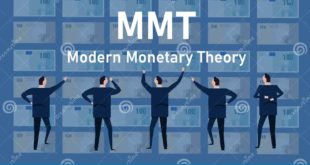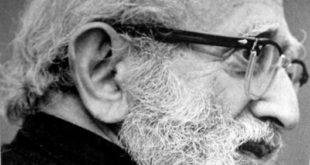Riksbankens penningpolitik — ett subtilt bondfångeri I ett baksäte sitter Riksbankens tidigare chef Stefan Ingves och scrollar mellan diagram på sin mobilplatta. Men han pratar inte, som man skulle kunna tro, om siffror och samband. Om vilka vetenskapliga beräkningar som ligger bakom Sveriges inflationsmål på två procent. I stället pratar han om att allt egentligen handlar om att hitta en berättelse, en linje, ett budskap som folk tror på … Scenen kommer...
Read More »Speech in the House of Lords – Autumn Budget 2024
11th of November 2024 My Lords, there are many things to welcome in this Budget, particularly on the spending side. I am less keen on some of the tax proposals, which seem to be mean-minded and counterproductive, such as the tax on knowledge. The spending commitments are important because they reverse the disastrous policy of austerity, which has brought our public services and infrastructure close to collapse. Even the IMF, originally a champion of austerity, admitted that it had...
Read More »Modern monetär teori
I Sverige har MMT knappt nämnts i den publika diskussionen överhuvudtaget. En genomsökning av tidningsdatabasen Retriever, som samlar upp det mesta som skrivs i detta land med någorlunda regelbundenhet finns MMT nämnt i ett par artiklar … Ett epicentrum för denna teoribildning har varit och är Levi Institute vid Bard College där professorerna L Randal Wrey och Stepanie Kelton hör till de mest omtalade. Här har man vårdat det intellektuella arvet efter ekonomen och...
Read More »Problemen med Riksbankens oberoende
Problemen med Riksbankens oberoende Riksbanken har en nästintill oinskränkt makt över penning-politiken, en politik som i hög grad styr inflation, sysselsättning och ekonomisk stabilitet. Denna makt bör vara föremål för större demokratisk övervakning för att säkerställa att den överensstämmer med vad vi som samhällsmedborgare har för intressen. Riksbanken verkar över tid ha utvecklat en slags ‘policybias’ där inflationskontroll prioriteras över arbetslöshet...
Read More »L’ascenseur social est en panne
L’ascenseur social est en panne L’expression “l’ascenseur social est en panne” désigne le déclin de la mobilité sociale, autrement dit, la capacité d’un individu à s’élever au sein de l’échelle sociale grâce à ses efforts et ses compétences. Ce phénomène, autrefois encouragé par l’éducation et le marché du travail, semble aujourd’hui compromis pour une grande partie de la population. En France, le système d’éducation était censé être un levier d’égalité des...
Read More »Die fixe Idee des Finanzministers
Die fixe Idee des Finanzministers Bundeskanzler Olaf Scholz entließ Finanzminister Christian Lindner angesichts anhaltender Konflikte in der deutschen Regierungs-koalition. Lindner geriet wiederholt mit Scholz über finanzpolitische Fragen aneinander. Er lehnte die Pläne der SPD und Grünen für schuldenfinanzierte Maßnahmen entschieden ab, einschließlich einer Lockerung der ‘Schuldenbremse’ zur Förderung von Investitionen, insbesondere in Energie und...
Read More »Who brought us Trump?
from Peter Radford Battle is joined … This might annoy some of you — it is my hasty first thought. The Democrats have been thoroughly defeated. Deservedly so. They no longer relate to, or reflect, the American working class. Without building such a relationship they cannot regain power. Nor should they. Yesterday, early on the morning of election day, a friend of mine forwarded an article by Robert Reich who argued that, in order to defeat Trump, Harris needed to focus more on the...
Read More »Functional finance
As the national debt increases it acts as a self-equilibrating force, gradually diminishing the further need for its growth and finally reaching an equilibrium level where its tendency to grow comes completely to an end. The greater the national debt the greater is the quantity of private wealth. The reason for this is simply that for every dollar of debt owed by the government there is a private creditor who owns the government obligations (possibly through a corporation in...
Read More »On Sraffa and Keynes
On Sraffa and Keynes Both neo-classical and Sraffian theory stand mute when it comes to money and accumulation under capitalist conditions. In both frameworks the central areas of “the theory of money and the theory of capitalist accumulation” are among “the difficult analytical problems” that “remain to be settled” … A profit flows based analysis of an accumulating capitalist economy requires that the analysis include money and banking from the very...
Read More »Logic and truth in economics
Logic and truth in economics To be ‘analytical’ and ‘logical’ is something most people find recommendable. These words have a positive connotation. Scientists think more deeply than most other people because they use ‘logical’ and ‘analytical’ methods. In dictionaries, logic is often defined as “reasoning conducted or assessed according to strict principles of validity” and ‘analysis’ as having to do with “breaking something down.” But that’s not the whole...
Read More » Heterodox
Heterodox






